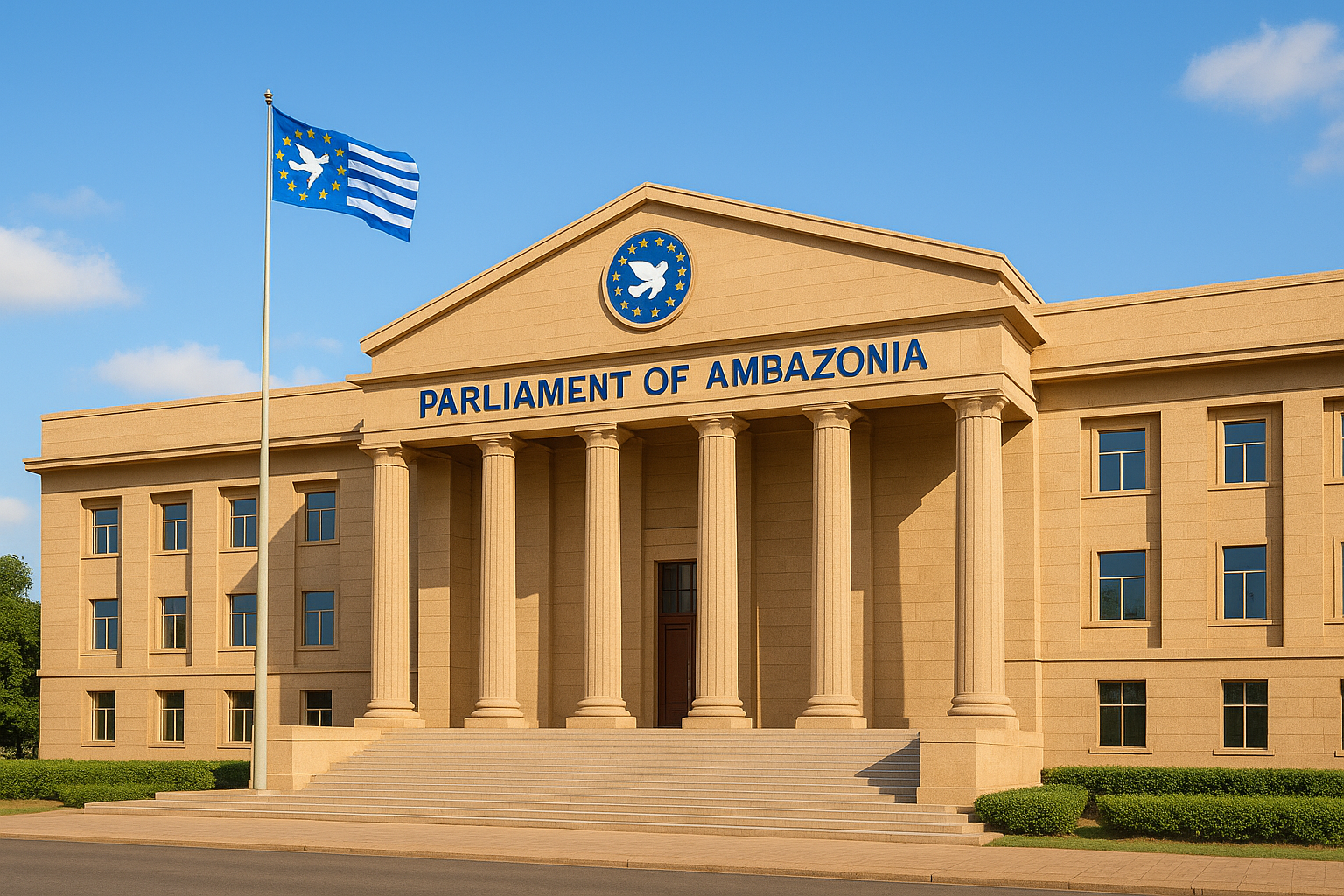
Introduction
The Speaker of the Parliament of Ambazonia is the chief custodian of the nation’s legislative authority of the Lower House. As the highest-ranking officer of Parliament, the Speaker symbolizes the unity of the chamber, the impartiality of the law, and the dignity of the Ambazonian people. More than a presiding officer, the Speaker is the guardian of parliamentary sovereignty, ensuring that debates are conducted in an orderly manner, laws are valid, and representation is respected. The Office of the Speaker is therefore not personal—it is an institution within the institution, vested with authority, responsibilities, and ceremonial weight that safeguard Parliament as the sovereign voice of Ambazonia.
1) Constitutional Authority
The Speaker derives power from the Constitution of the Republic of Ambazonia and the Standing Orders of Parliament.
• Presiding Authority: Chairs parliamentary sessions, enforces rules of procedure, and maintains order in debate.
• Certification of Laws: Verifies and certifies Acts of Parliament before promulgation.
• Guardian of Privileges: Defends MPs’ rights, immunity, and access to information.
• Representative Role: Speaks for Parliament in dealings with the Executive, Judiciary, and international bodies.
• Arbiter of Procedure: Rules on points of order, quorum, and voting outcomes.
Without the Speaker, Parliament cannot lawfully sit, legislate, or certify laws.
2) Functions of the Speaker
a) Presiding Over Debates.
• Opens and adjourns sittings.
• Recognizes Members to speak, ensuring balanced debate.
• Maintains decorum, preventing insults, hate speech, or disorder.
• Ensures debates stay focused on legislation rather than personal disputes.
b) Certifying Legislation
• Examines final versions of bills.
• Confirms proper procedures were followed.
• Certifies Acts before transmission for executive assent and publication.
c) Upholding Parliamentary Independence
• Protects MPs from external interference.
• Ensures security of proceedings against infiltration or intimidation.
• Safeguards archives and parliamentary records.
d) Representation of Parliament
• Meets with the Head of State and Executive officials.
• Engages foreign parliaments and international organizations.
• Leads parliamentary delegations abroad.
e) Oversight of Committees
• Assigns bills to committees.
• Approves establishment of ad hoc committees.
• Receives and transmits committee reports for debate.